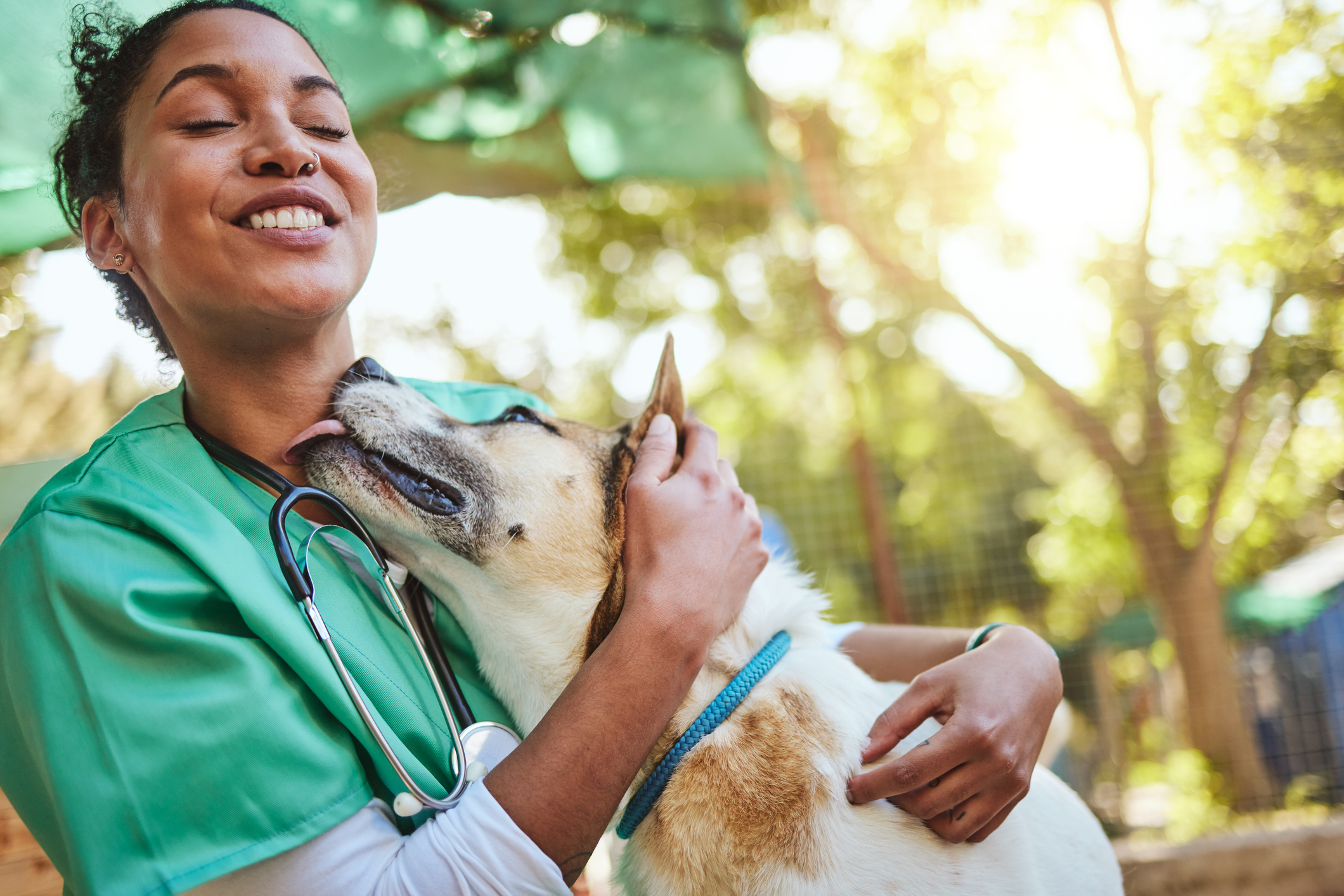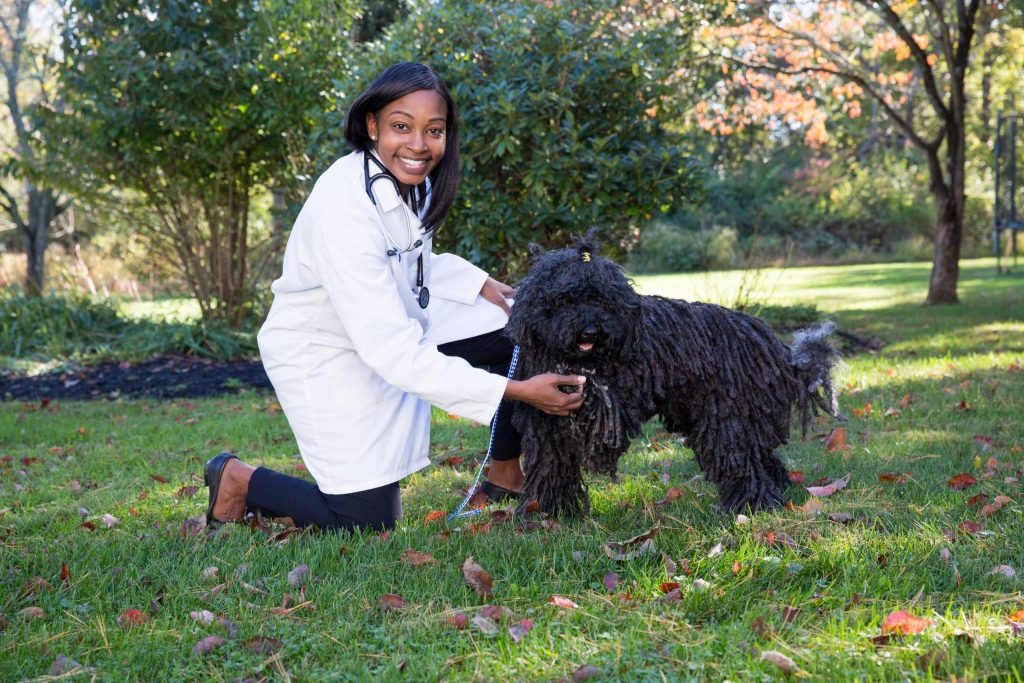Comprehensive Guide to the Providers Offered by a Veterinary Oncologist
Vet oncology includes a large array of solutions focused on diagnosing and treating cancer cells in animals. Veterinary Cancer Specialist. Oncologists use advanced analysis strategies and supply different therapy options tailored to every animal's requirements. They additionally prioritize helpful treatment and provide important sources for pet owners. Understanding these services is important for making notified choices. What specific facets of vet oncology can significantly influence a pet's treatment journey?
Understanding Veterinary Oncology
Vet oncology is a specialized field concentrated on dealing with and detecting cancer in pets. This self-control encompasses a vast array of techniques, from clinical therapies such as chemotherapy and immunotherapy to medical interventions focused on eliminating tumors. Veterinary oncologists are educated to acknowledge the one-of-a-kind symptoms of cancer in different varieties, allowing them to customize treatment plans to specific patients.
In enhancement to typical treatments, veterinary oncology highlights helpful care, which plays an important function in enhancing the lifestyle for damaged pets. This includes discomfort administration, nutritional support, and palliative treatment options. Cooperation with pet proprietors is essential, as they are indispensable to decision-making concerning their pet dogs' treatment paths. As study developments, vet oncology remains to develop, providing new hope and improved outcomes for pets diagnosed with cancer cells. In general, this field is basic for addressing the intricacies of cancer in companion animals.
Advanced Diagnostic Techniques
Advanced analysis methods play a necessary role in vet oncology, giving essential understandings into the visibility and degree of cancer cells in pets. Imaging methods such as ultrasound, CT scans, and MRI are commonly employed to imagine tumors and examine their qualities. In addition, biopsy treatments are essential for acquiring cells examples, enabling definitive diagnosis and tailored treatment strategies.
Imaging Modalities Utilized
Imaging techniques play a vital duty in the medical diagnosis and administration of cancer cells in pets. Veterinary oncologists make use of various advanced imaging methods to analyze lump dimension, existence, and transition. Radiography, or X-rays, provides a preliminary sight of bone and breast problems, while ultrasound supplies real-time imaging of soft tissues, enabling thorough analysis of inner body organs. Calculated tomography (CT) boosts visualization of complex physiological structures and makes it possible for 3D repairs, helping in specific lump localization. Magnetic resonance imaging (MRI) is invaluable for soft cells distinction, particularly in brain growths. Additionally, nuclear medication techniques such as positron discharge tomography (FAMILY PET) assistance determine metabolic task within tumors. Collectively, these modalities enhance analysis precision, assisting efficient therapy techniques for oncological patients.
Biopsy Procedures Discussed
Following the preliminary evaluation through imaging modalities, getting a definitive medical diagnosis frequently requires tissue sampling via biopsy treatments. Vet oncologists use numerous biopsy strategies based on the growth's area and features. Fine needle goal (FNA) is a minimally invasive approach that removes cells for cytological exam, suitable for shallow masses. Core needle biopsies offer bigger tissue samples and serve for much deeper lumps, permitting histopathological evaluation. Surgical biopsies include excising a portion or the whole tumor, facilitating detailed evaluation. These procedures not just verify the visibility of cancer cells however also help identify its type and quality, assisting therapy decisions. Each biopsy method is picked very carefully to balance analysis accuracy with person security and convenience.
Treatment Alternatives for Cancer Cells in Pet dogs
When a family pet is detected with cancer cells, a range of therapy options become offered to aid manage the condition and enhance lifestyle. Vet oncologists usually recommend a multidisciplinary strategy customized to the private animal's demands, which may consist of surgery, radiation treatment, immunotherapy, or alternate therapies.
Surgical procedure is often employed to get rid of lumps and affected cells, possibly causing complete remission in some situations. Radiation therapy aims to destroy and target cancer cells, lowering tumor size and alleviating symptoms - Veterinary Cancer Specialist. Immunotherapy utilizes the pet's body immune system to eliminate cancer cells better, while alternative treatments might consist of acupuncture or organic supplements to support overall wellness
Each therapy option lugs its very own benefits and dangers, and veterinary oncologists work closely with pet proprietors to develop an extensive strategy that straightens with the pet dog's specific diagnosis and the owner's dreams. The supreme goal is to improve the animal's convenience and lifestyle throughout their cancer cells journey.
Chemotherapy for Animals
Chemotherapy is a typical treatment choice for family pets detected with cancer cells and is usually used combined with other treatments laid out by veterinary oncologists. This treatment includes the management of details medications developed to destroy and target cancer cells, therefore minimizing tumor dimension and avoiding the spread of the condition. Vet oncologists customize chemotherapy methods based on the sort of cancer, the pet's general wellness, and the preferred treatment result.
Negative effects can occur, as these medications might additionally affect healthy cells. Common reactions consist of nausea or vomiting, throwing up, and momentary adjustments in appetite - Board Certified Veterinary Oncologist. Vet oncologists are geared up to manage these negative effects efficiently, making certain the family pet's convenience throughout the therapy procedure. Regular tracking via blood examinations and follow-up appointments is important to analyze the family pet's response to radiation treatment and make needed changes. Inevitably, chemotherapy can provide significant advantages, boosting the high quality of life for pet dogs dealing with cancer cells medical diagnoses

Radiation Therapy in Veterinary Medication
Radiation therapy functions as an effective treatment option for pets diagnosed with localized tumors, using a targeted approach to cancer management. This technique uses high-energy radiation to damage the DNA of cancer cells, preventing their capability to multiply. It is especially valuable for tumors that are not amenable to surgical removal or for cases where surgical procedure might not be possible due to the growth's place.
Vet oncologists customize radiation protocols based on tumor size, area, and kind, as well as the animal's overall health and wellness. Therapy can be provided via outside beam radiation or brachytherapy, you could try here each with distinctive benefits. Generally, several sessions are called for to optimize efficiency while reducing adverse effects.
Although pet dogs might experience momentary reactions such as skin irritability, the general purpose is to reduce growths and relieve symptoms, inevitably improving the pet dog's prognosis and top quality of life. As necessary, radiation treatment plays an important function in detailed cancer care.
Palliative Treatment and Lifestyle
Palliative care in veterinary oncology concentrates on enhancing the lifestyle for pets encountering terminal diseases, making sure comfort and self-respect in their final days. This specific strategy focuses on discomfort administration, signs and symptom control, and psychological assistance. Veterinary oncologists evaluate each animal's specific requirements, tailoring treatments to minimize discomfort and improve general well-being.
Methods may include providing medicines for discomfort alleviation, taking care of nausea, and addressing various other traumatic symptoms. Additionally, dietary assistance is commonly supplied to keep strength and improve cravings. The psychological element of palliative treatment is equally important; developing a tranquil setting helps in reducing anxiety for both animal and proprietor.
Inevitably, the objective of palliative care is to enable pets to enjoy their staying time with as much pleasure and self-respect as possible. By concentrating on convenience and lifestyle, vet oncologists play a necessary function in ensuring that pets and their families browse this difficult trip with concern and understanding.
Support for Pet Dog Owners During Therapy

Psychological Assistance for Proprietors
Charting the emotional landscape during a pet dog's cancer cells therapy can be a frustrating experience for proprietors. The uncertainty surrounding medical diagnosis and prognosis can bring about feelings of vulnerability, anxiety, and despair. Veterinary oncologists identify the value of emotional support and usually give support to aid owners navigate this challenging trip. Communication is important; reviewing treatment choices and prospective results can ease some fears. Furthermore, providing confidence that emotional feedbacks are valid fosters a helpful setting. Lots of oncology facilities may additionally suggest support system or counseling solutions customized for animal owners, facilitating common experiences. Urging proprietors to focus on self-care throughout this time around is vital, as their emotional wellness straight influences their pet's convenience and total treatment experience.

Resources and Educational Materials
Steering via the complexities of a family pet's cancer therapy can be daunting for owners, making accessibility to dependable sources and educational materials necessary. Vet oncologists commonly give a range of handouts, brochures, and online materials that clarify therapy alternatives, possible adverse effects, and treatment techniques. These resources assist empower and demystify the process animal owners to make informed choices. Additionally, many oncology clinics offer accessibility to sustain groups and online forums where owners can connect with others facing similar difficulties, promoting a feeling of area. Educational seminars and webinars performed by veterinary specialists additionally improve understanding, ensuring that proprietors are fully equipped to navigate their pet dog's trip via cancer cells treatment with confidence and expertise.
Frequently Asked Inquiries
Exactly How Can I Prepare My Pet for a Vet Oncology Visit?
Preparing a pet dog for a vet oncology go to includes gathering clinical records, noting signs, and making certain the family pet fits. A tranquil temperament and familiar products can assist relieve anxiety during the appointment.
What Are the Indications My Pet Dog May Have Cancer Cells?
Indicators that a pet dog may have cancer cells consist of unusual weight management, relentless vomiting or looseness of the bowels, uncommon swellings or swellings, lethargy, changes in hunger, difficulty breathing, and modifications in habits. Prompt vet interest is important.
Just How Can I Support My Pet Dog Psychologically Throughout Therapy?
Sustaining an animal emotionally during treatment entails providing convenience, maintaining routines, supplying gentle love, and making certain a tranquil setting. Engaging in peaceful play and routine friendship helps relieve stress and promotes a feeling of security.
Exist Different Therapies for Pets With Cancer cells?
Alternative therapies for family pets with cancer cells consist of acupuncture, herbal treatments, and dietary assistance. These strategies might match conventional therapies, advertising overall well-being. Consulting with a veterinarian is crucial for reliable and safe combination of different therapies.
What Expenses Should I Anticipate for Vet Oncology Providers?
The anticipated prices for veterinary oncology services can vary considerably, often influenced by diagnostics, therapies, and recurring treatment. Animal owners should get ready for expenditures ranging from appointments to specialized therapies, reflecting the complexity of cancer cells monitoring.
Partnership with animal proprietors is important, as they are integral to decision-making concerning their pets' therapy courses. Each therapy option brings its own benefits and risks, and vet oncologists function carefully with animal proprietors to make a thorough strategy that aligns with the pet dog's particular medical diagnosis and the proprietor's desires. Pets might experience short-term reactions such address as skin irritability, the my blog overall goal is to diminish lumps and relieve signs, ultimately enhancing the pet's prognosis and high quality of life. Support for family pet owners during therapy is vital in guiding via the emotional obstacles associated with a pet's cancer cells medical diagnosis. Preparing a pet for a vet oncology visit includes celebration medical documents, keeping in mind signs, and guaranteeing the family pet is comfy.